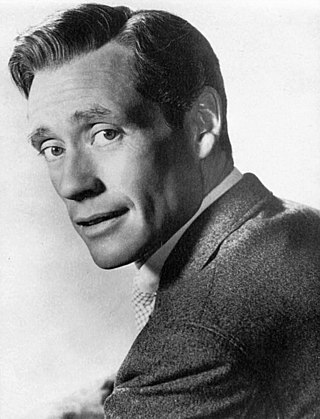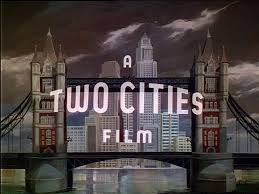
Italian neorealism, also known as the Golden Age, was a national film movement characterized by stories set amongst the poor and the working class. They are filmed on location, frequently with non-professional actors. They primarily address the difficult economic and moral conditions of post-World War II Italy, representing changes in the Italian psyche and conditions of everyday life, including poverty, oppression, injustice and desperation.

The Italian Social Republic, known prior to December 1943 as the National Republican State of Italy, but more popularly known as the Republic of Salò, was a Nazi-German puppet state with limited diplomatic recognition that was created during the latter part of World War II. It existed from the beginning of the German occupation of Italy in September 1943 until the surrender of German troops in Italy in May 1945. The German occupation triggered widespread national resistance against it and the Italian Social Republic, leading to the Italian Civil War.

The Italian campaign of World War II, also called the Liberation of Italy following the German occupation in September 1943, consisted of Allied and Axis operations in and around Italy, from 1943 to 1945. The joint Allied Forces Headquarters (AFHQ) was operationally responsible for all Allied land forces in the Mediterranean theatre and it planned and led the invasion of Sicily in July 1943, followed in September by the invasion of the Italian mainland and the campaign in Italy until the surrender of the German Armed Forces in Italy in May 1945.

Human torpedoes or manned torpedoes are a type of diver propulsion vehicle on which the diver rides, generally in a seated position behind a fairing. They were used as secret naval weapons in World War II. The basic concept is still in use.

Melchor Gastón Ferrer was an American actor and filmmaker. He achieved prominence on Broadway before scoring notable film hits with Scaramouche, Lili, and Knights of the Round Table. He starred opposite his wife, actress Audrey Hepburn, in War and Peace and produced her film Wait Until Dark. He also acted extensively in European films and appeared in several cult hits, including The Antichrist (1974), The Suspicious Death of a Minor (1975), The Black Corsair (1976), and Nightmare City (1980).

Rome, Open City, also released as Open City, is a 1945 Italian neorealist war drama film directed by Roberto Rossellini and co-written by Sergio Amidei, Celeste Negarville and Federico Fellini. Set in Rome in 1944, the film follows a diverse group of characters coping under the Nazi occupation, and centers on a Resistance fighter trying to escape the city with the help of a Catholic priest. The title refers to the status of Rome as an open city following its declaration as such on 14 August 1943. The film is the first in Rosselini's "Neorealist Trilogy", followed by Paisan (1946) and Germany, Year Zero (1948).

The military history of Greece during World War II began on 28 October 1940, when the Italian Army invaded Greece from Albania, beginning the Greco-Italian War. The Greek Army temporarily halted the invasion and pushed the Italians back into Albania. The Greek successes forced Nazi Germany to intervene. The Germans invaded Greece and Yugoslavia on 6 April 1941, and overran both countries within a month, despite British aid to Greece in the form of an expeditionary corps. The conquest of Greece was completed in May with the capture of Crete from the air, although the Fallschirmjäger suffered such extensive casualties in this operation that the Oberkommando der Wehrmacht abandoned large-scale airborne operations for the remainder of the war. The German diversion of resources in the Balkans is also considered by some historians to have delayed the launch of the invasion of the Soviet Union by a critical month, which proved disastrous when the German Army failed to take Moscow.

Piero Piccioni was an Italian film score composer and lawyer.
During World War II, resistance movements operated in German-occupied Europe by a variety of means, ranging from non-cooperation to propaganda, hiding crashed pilots and even to outright warfare and the recapturing of towns. In many countries, resistance movements were sometimes also referred to as The Underground.

Two Cities Films is a British film production company. Formed in 1937, it was originally envisaged as a production company operating in the two cities of London and Rome which gave the company its name.

Thunderbolt is a 1947 film directed by William Wyler and John Sturges which documented the American aerial operations of Operation Strangle in World War II, when flyers of the Twelfth Air Force based on Corsica successfully impeded Axis supply lines to the Gustav Line and Anzio beachhead. The film was originally shot in 16mm color by members of the Army Air Forces. The 12th Combat Camera Unit recorded the combat footage using cameras mounted on some of the P-47s and a B-25 medium bomber equipped as a camera ship to accompany the fighters.
A list of some notable films produced in the Cinema of Italy ordered by year and decade of release For an alphabetical list of articles on Italian films see Category:Italian films.

Paisan is a 1946 Italian neorealist war drama film directed by Roberto Rossellini. In six independent episodes, it tells of the Liberation of Italy by the Allied forces during the late stage of World War II. The film premiered at the Venice International Film Festival and received numerous national and international prizes.

The bombing of Treviso, a town in Northeastern Italy, took place on 7 April 1944, during World War II. Aimed at disabling the town's marshalling yard, it resulted in the destruction of most of the town.

Florestano Vancini was an Italian film director and screenwriter.
Steve Sekely was a Hungarian film director. Born István Székely, he was known by several names, based on his changing professional and immigration status, including Stefan Szekely. He directed films in Hungarian, German, and English.

The Società Italiana Cines is a film company specializing in production and distribution of films. The company was founded on 1 April 1906.

Macario Against Zagomar is a 1944 Italian comedy film directed by Giorgio Ferroni and starring Erminio Macario.

Calligrafismo is an Italian style of filmmaking relating to some films made in Italy in the first half of the 1940s and endowed with an expressive complexity that isolates them from the general context. Calligrafismo is in a sharp contrast to Telefoni Bianchi-American style comedies and is rather artistic, highly formalistic, expressive in complexity and deals mainly with contemporary literary material, above all the pieces of Italian realism from authors like Corrado Alvaro, Ennio Flaiano, Emilio Cecchi, Francesco Pasinetti, Vitaliano Brancati, Mario Bonfantini and Umberto Barbaro.

















